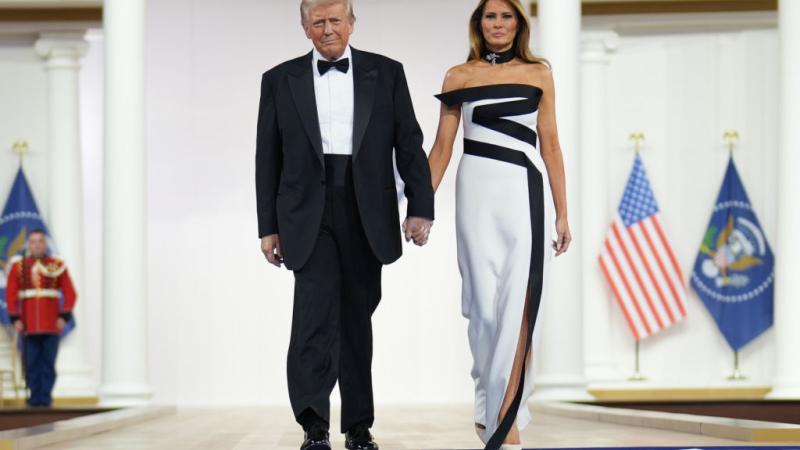As government shutdown looms larger, key Republicans warn it could slow Biden impeachment inquiry
Some Republicans, including Speaker McCarthy, warn that a shutdown would handicap investigations into Biden.
Top House Republicans are warning that forcing a government shutdown in a matter of days would indeed solidify campaign promises to rein in government spending – but that it also would derail long-sought efforts to begin an impeachment inquiry for President Joe Biden.
A partial government shutdown by the end of the month appeared even more imminent Thursday, when the Republican-led House for the second time this week failed to advance a Pentagon spending bill, which resulted in House Speaker Kevin McCarthy sending members home for the weekend.
The impeachment inquiry, whose focus is largely on the Biden family's overseas business deals, is set to begin next week with a first official hearing.
On Thursday, Georgia GOP Rep. Marjorie Taylor Greene said on the "John Solomon Reports" podcast she opposes a shutdown because of such likely consequences.
“We need the impeachment inquiry to keep going, you know, a shutdown doesn't stop Jack Smith, special counsel," she said, referring to the Justice Department official leading a criminal investigation into former President Trump.
"It doesn't stop David Weiss from making sweetheart deals, and continuing to cover up Hunter Biden crimes,” continued Greene, referring to the special counsel investigation into first son Hunter Biden. “But our impeachment inquiry is so important. It takes three powerful committees to do it – Ways and Means, Judiciary and House Oversight. And so, this is why we have to keep doing our work."
McCarthy made similar comments Sunday on the Fox Business Channel.
"If we shut down, all the government shuts it down – investigation and everything else," said California Republican, in what sounding like a warning to those in his conference willing to force a shutdown at all costs. “A shutdown would only give strength to the Democrats. It would give the power to Biden."
Last week, McCarthy announced a formal impeachment inquiry into Biden based on evidence that congressional Republicans have uncovered since taking control of the House early this year.
“Through our investigations, we have found that President Biden did lie to the American people about his own knowledge of his family's foreign business dealings," he said. "Eyewitnesses have testified that the president joined on multiple phone calls and had multiple interactions, dinners resulted in cars and millions of dollars into his sons and his son's business partners."
Experts say Congress theoretically could still issue subpoenas during the shutdown. But federal agencies could potentially use closures to refuse to comply, and federal courts would not be in an immediate position to intervene.
McCarthy and Greene are not alone in their concerns that a shutdown could handicap the inquiry.
"A government shutdown doesn't help, and it certainly won't accelerate our impeachment inquiry into the evidence of Joe Biden's widespread corruption,” Jonathan Wilcox, a spokesman for GOP Rep. Darrell Issa told Just the News on Thursday.
In 2010, Issa became the chairman of the House Oversight Committee, directing several investigations into the Obama administration, including the federal government's failed gun-tracking program known as Operation Fast and Furious.
Other Republicans are not buying McCarthy’s argument.
“It’s not as if the investigators won’t be considered necessary or essential personnel,” Colorado GOP Rep. Ken Buck told the New York Times in late August.
Buck was referring to the fact that a shutdown would in fact be only a partial shutdown, which would close only non-essential government operations and furlough non-essential employees.
McCarthy "is the one who decides how much of the House we shut down," Buck also said.
The motivations behind the fight over funding the government run deeper than the impeachment inquiry.
To win the speakership earlier this year, McCarthy promised that Republicans would pass appropriations bills individually instead of relying on an omnibus spending bill, in addition to limiting spending. The promise was geared toward restoring regular order in the House from a historical perspective and curb Congress’ spending habit.
Now, with time running out, McCarthy shifted strategy to pass a stop-gap measure, known as a continuing resolution, to prevent a government shutdown and give more time for House Republicans to negotiate and pass the individual appropriations bills.
The House Republicans’ first impeachment inquiry hearing is scheduled for Sept 28. The hearing will focus on constitutional and legal questions related to the president's alleged involvement in corruption and abuse of public office," a committee spokesperson said, according to NPR.
The committee also intends to subpoena the personal and business bank records as early as this week of Hunter Biden and the president's brother, James Biden.
Former Rep. Devin Nunes, who ran the House Intelligence Committee when it debunked the Russiacollusion narrative, urged his old colleagues, to avoid a shut down with a short term spending bill do they can keep the focus on the impeachment inquiry and exposing the weaponization of government agencies.
”The Republicans can subpoena people, go after documents and begin to put together what really is a criminal conspiracy to abuse the government that allowed the Bidens to get away with what they've gotten away with for so long,” he told the Just the News, No Noise television show Thursday night.















